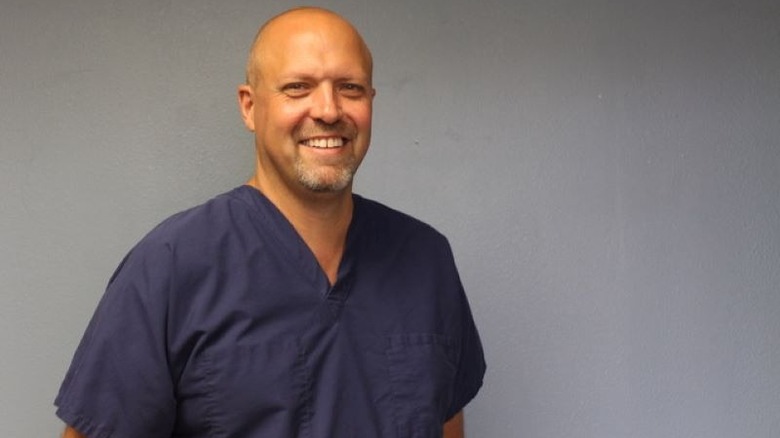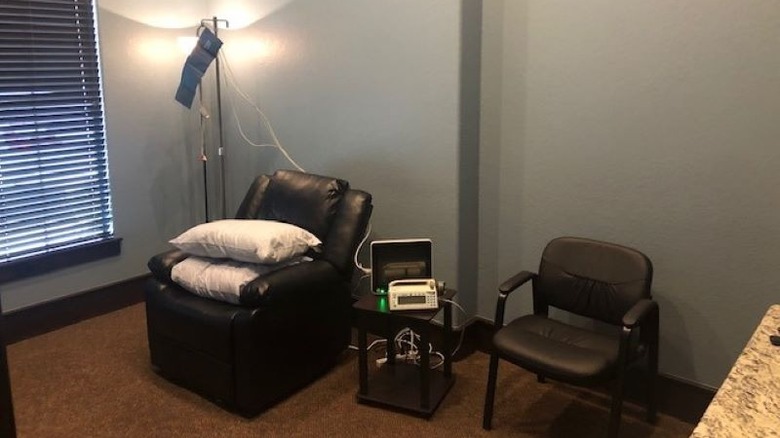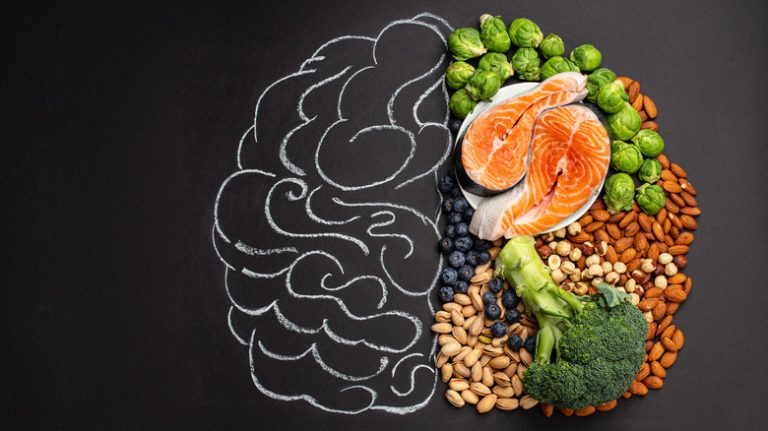Though ketamine is a completely legal anesthetic used on humans in hospital settings, it gets a bad reputation because it is often abused as a party drug, according to the Drug Enforcement Administration (DEA). This bad reputation has made it difficult to legitimize ketamine as a valuable treatment for mental health issues like treatment-resistant depression and anxiety.
However, according to Kevin Nicholson — a registered nurse and the CEO of Ketamine Wellness Centers (KWC) – IV infusions of low-dose ketamine are highly effective for people with depression and anxiety and have relatively few side effects. In fact, he says that patients he’s worked with who went through years of ineffective treatments for their mental health issues have called ketamine therapy “transformative.”
In an exclusive interview with Health Digest, Nicholson explained how ketamine is used to treat depression and anxiety and why it’s a safe and effective option for people who haven’t found another treatment that works.
How ketamine works for anxiety and depression

Nicholson explained that ketamine works by helping the brain regrow neural pathways that have been damaged, which is a common side effect of long term stress, anxiety, and depression.
“Ketamine helps repair those neural pathways,” he stated.
Research Nicholson has been involved in has also shown that ketamine can help create brand new neural pathways, which can change how your brain processes information. For many people he’s worked with, these changes to the brain help reduce negative and obsessive intrusive thoughts.
Though the research backs up the science behind ketamine therapy, Nicholson said the most convincing proof of its effectiveness comes from the patients who have undergone ketamine infusions and experienced its results.
“I was able to talk with patients and hear their stories of failed treatments and how these infusions not only had been so transformative but also [lacked] any side effects post-infusion,” he shared.
How ketamine therapy is administered safely

Because ketamine is so often abused, some people mistakenly assume that it’s not a very safe drug. However, Nicholson said that when ketamine is administered in low doses by an experienced professional it’s completely safe.
“Traditionally, treatment is done by IV infusion and is produced commercially so administrators know exactly how much is being used for treatment,” he explained. “KWC providers are trained to administer in the right care and patient safety settings — this includes recent expansions to treatment, such as Spravato. Spravato is an FDA-approved esketamine nasal spray that’s taken with an oral antidepressant, providing a modernized and effective treatment option for those experiencing depressive symptoms.”
The IV infusions aren’t painful at all, and most patients feel calm and relaxed during treatment.
Unfortunately, ketamine is not yet approved as a treatment for anxiety and depression by the FDA. This means ketamine therapy is considered “off-label use” by most insurance companies and typically isn’t covered. This means that ketamine therapy isn’t currently as accessible as it could be since most people need to pay out of pocket.
However, Ketamine Wellness Centers work with multiple insurance companies to figure out coverage and offer financing for those who can’t afford treatments.
Ketamine Wellness Centers (KWC) is the largest ketamine therapy provider in the United States with 13 clinic locations serving communities across nine states. For more information about KWC’s locations, services, and hours of operation, please visit www.ketaminewellnesscenters.com or follow them on Facebook and LinkedIn.



